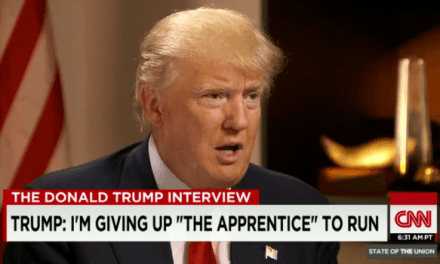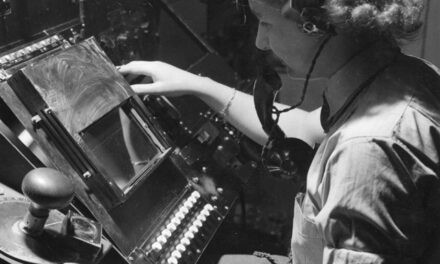The last weekend in September saw a buzzing festival of television organised by the Radio Times on the green opposite Hampton Court Palace. There were a number of massive tents (including the Eric Tent and the Ernie Tent), housing events and talks by celebrities and programme makers; there were screenings, storytelling booths, book signing and hands-on activities for adults and children. (Try delivering a weather forecast against a green screen. How can you point accurately to Cornwall or Northern Ireland when there’s nothing but blank greenness -even though the map is displayed on the monitor in front of you? The thirteen-year-old I watched was definitely having problems). You could take a ballroom dance masterclass with Robin Windsor of Strictly, or a tour of the real ‘Wolf Hall’, Hampton Court Palace, just across the road.
The weather was fine, there was lots of ice cream and gourmet food, and on Sunday when I visited, the green was crowded. The dense queues outside the tents hosting celebrity events curled around the corner a full half hour before the start time. But why were they queuing? You needed to buy your ticket in advance so there was definitely room for all. ‘They want to get as close to him as possible’ the doorman outside the David Walliams event told me.
So, television is booming. ‘It brings us together like nothing else’ writes Radio Times columnist Alison Graham in the festival programme. ‘We still more than anything want to gather as one’.
But it’s difficult to write about a celebratory festival at a time when the future of UK television is in the balance and the meaning of ‘gathering as one’ is being questioned. In the ‘BBC Experience’ as well as encouraging you to read the weather forecast and operate a hyper-slow motion camera (more than 1,000 frames a second instead of the standard 25) they were handing out leaflets headed ‘Have your say’, encouraging visitors to respond to the DCMS Consultation on the BBC’s Charter renewal, due in 2016. (I first read its capitalised HELP SHAPE THE BBC as ‘Help SAVE the BBC’ -it seemed more appropriate.)
As all academics interested in UK television know, and as John Ellis explained in CST online on 24 July, the Consultation Document is a thinly disguised attack on every aspect of the Corporation, suggesting it needs ‘reform’, ‘modernisation’ and a ‘tighter focus on its core purposes’, which clearly should not include ‘gathering the nation as one’, especially if that’s on a Saturday night in front of Strictly Come Dancing. As I write, campaigning is building up, since if the Government has its way the BBC will be smaller, with less money, more tightly regulated, making fewer programmes, with a more limited range. Overall it would be less independent and look more like a state broadcaster. This is a strange approach from a Government which is vocal in its belief in de-regulation and rolling back the state.
The publication of the Consultation Document in July brought immediate responses from media academics: in a letter in the Independent (1.8.2015) MeCCSA members pointed to the assumptions built into its language which take for granted that the BBC has a negative impact on the commercial media market. ‘It is clear that the Green Paper’s real intent is not to secure a future for a well-funded, genuinely independent and innovative public service provider, but to shrink the BBC in the interests of its commercial competitors’. It was signed by 47 academics and many more have added their names since. It will go to the DCMS with MeCCSA’s response to the Consultation.
There has been an explosion of academic debate -in public meetings and online: from MeCSSA, the LSE Media Policy Project, the University of Westminster and many other Universities, as well as forums like Open Democracy’s Our Beeb.
Campaigning groups have joined in, including the Media Reform Coalition, the Voice if the Listener and Viewer (VLV), the Campaign for Press and Broadcasting Freedom (CPBF) (I’m currently its vice-chair), the Federation of Entertainment Unions and the National Union of Journalists (NUJ). For once campaigners have put aside their reservations about the BBC in recognition of its unique importance as a publicly funded, national media organisation, committed to universality (call it ‘gathering us as one’, if you like).
OK, responds the DCMS Document, you may well say that (indeed the Document itself echoes the sentiment, beginning ‘The BBC is at the very heart of Britain. It is one of this nation’s most treasured institutions -playing a role in almost all of our lives’ (p.1)). But, it goes on, precisely ‘which elements of universality are most important for the BBC?’. And its Executive Summary expands on the question (Question 2 in the Document) pointing to what it sees as problems, and suggesting alternatives:
a. As more and more options become available should the BBC provide programmes and services for all audiences, and on an equal basis, across every platform, or should it focus on underservedaudiences
b. Should it have a more targeted or prioritised set of purposes ‘to reflect its increasingly varied and competitive environment’) (p.3).
It’s clear which of these options the writers favour. (all my italics).
What is unusual about responses to this current Charter Review is partly the intensity and careful detail of the contributions to the debate, brought by a recognition that the BBC is under threat as never before, but also a real attempt to spread discussion to the wider public, beyond those with some background knowledge, and involving the everyday viewers, listeners and users of the BBC’s online services. That is why I began with the Radio Times Festival. And there have been a number of attempts to widen participation in the consultation process.
The Radio Times itself ran a short survey (1 August), based on the consultation questions ‘to make sure the voice of the viewers is heard’. 9,000 readers responded and the magazine (26 September) reported that 96% of respondents supported the principle of a publicly funded broadcaster, and 79% agreed that the BBC had the right mix of genres across its channels and services.
The website aimed at students and young people, The Student Room carries a survey on the future of the BBC, introduced by John Whittingdale (previously Chair of the Culture Media and Sport Committee now Culture Secretary). It invites comments on issues like ‘Does the BBC appeal to you?’ (responses range from the enthusiastic to the dismissive (‘An institution that protects paedophiles doesn’t appeal to me. Sherlock is good though’)), and ‘How do you think the BBC should be funded?’ where the licence fee won by 114 votes over its nearest rival, advertising, which got 78 votes.
The campaigning organisation 38 Degrees (so called after ‘the angle at which snowflakes come together to form an avalanche’) organises online petitions proposed by its members, which routinely gather thousands of signatures. As well as a petition to ‘Protect our BBC’, it ran its own version of the Consultation:
‘Just before the summer break, the government snuck out a ‘public consultation’ on the future of the BBC. It’s full of gobbledegook questions – they were obviously hoping that nobody would respond! So the 38 Degrees staff team has ‘translated’ the questions into plain English, and the time’s come to make sure they hear our voices’. (bold in the original).
For 38 Degrees, ‘Which elements of universality are most important for the BBC?’
‘sounds a bit like gobbledygook! It looks like it’s asking about the BBC’s aim of “providing something for all of us”. The BBC has TV and radio channels, as well as being online. It produces children’s programmes, drama, documentaries, entertainment and news. It also shows national events like Wimbledon and the Royal Wedding. You could talk about whether you think it’s important that the BBC produces this range of programmes and content. You could also talk about whether it’s important to you that these things come without adverts!’. It will be interesting to see the results of the 38 Degrees survey.
In the meanwhile, with a few days left to compose a useful response, the danger is that the Government’s mind is made up. Because of the BBC’s constitution by Royal Charter, the settlement is not subject to Parliamentary scrutiny or debate. This whole exercise may just be a show of consultation. However many responses support the BBC as a substantial, publicly funded presence with universal obligations, and argue that ‘we still more than anything want to gather as one’, the Government has no legal requirement to take them into account.
Pat Holland
Bournemouth University
Note:
The DCMS consultation is at
https://gov.uk/government/consultations/bbc-charter-review-public-consultation
The consultation closes on the 8th October




